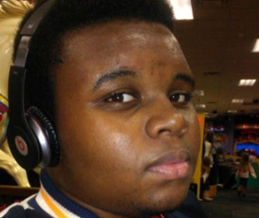Focus Policy Blog

Police Reform One Year After Michael Brown’s Death
[Editor’s Note: Below please find a reprint of Professor Kami Chavis Simmons’s Huffington Post commentary on police reform one year after Michael Brown’s death. Read the piece on Huffington Post by clicking here.]
Today marks the one-year anniversary of a Ferguson, Missouri police officer’s fatal shooting of Michael Brown, an unarmed 18-year-old suspected of stealing a cigar. When protests over Brown’s death erupted in Ferguson, the indelible images depicting the law-enforcement response toward the protestors revealed the depth of the problems existing within our criminal justice system and highlighted long-standing tensions between police and communities of color. While we have made progress in reforming policing, we are still at the beginning and there are many miles to go.
During this past year, numerous other unarmed African American victims have succumbed to police violence, including Eric Garner, Tamir Rice, Walter Scott, and Freddie Gray. One group estimates that of the 490 people killed by police between January and June 15, 2015, nearly 30% of those killed were black. The same group found that African Americans are more than twice as likely as whites to be unarmed when killed during encounters with police. In fact, from January through August 2015, the group reports that police killed 55 unarmed black people. Not surprisingly, a recent Reuters poll shows that only 28% of African Americans trust police to be fair and just, while 61% of whites believe police to be fair and just.
Since Brown’s death, there have been many efforts to examine and reform U.S. law enforcement.
President Obama, for example, established The President’s Task Force on 21st Century Policing comprised of law enforcement officials, community activists, police practices experts, and academics. The Task Force recommended that local police departments increase community engagement and accountability, implement procedural justice training to restore trust and legitimacy, and consider the role of technology in promoting accountability and public safety. The Task Force report also explored an important but often ignored issue–the health and well-being of police officers.
Further, President Obama signed an Executive Order to limit and place guidelines on the acquisition of surplus military equipment by local police departments. The Obama administration also earmarked $263 million for body-mounted cameras for body-mounted cameras for local police departments.
State and local governments nationwide also have begun to explore alternative methods to investigate and prosecute police-involved deaths. Citing inherent conflicts of interest between local prosecutors and police, critics have advocated for more independent investigations (Michael Brown’s killer was not indicted, and neither were the New York officers whose choking and killing of Eric Garner was captured on videotape). To this end, the New York state Attorney General announced that a specialized unit within that office would be responsible for investigating and prosecuting police-involved deaths.
While the deaths of Michael Brown and others resulted in significant efforts to reform the criminal justice system, much more is needed. State and local governments, for example, should adopt applicable recommendations within the President’s Task Force on 21st Century Policing Report. Similarly, experts should vigorously examine and conduct empirical research on newly adopted programs to determine their efficacy. Further, like New York, other states should continue to explore other models to investigate police-involved deaths to ensure that officers are held accountable for unjust killings.
Following Michael Brown’s death a year ago, our nation embarked on a long journey toward justice. Although police violence against racial minorities has been an intractable problem for many decades, Brown’s death was the catalyst that sparked not only a national conversation police reform, but also a conversation about widespread criminal justice reforms needed to restore the legitimacy that counterproductive law enforcement strategies have eroded over time. Meaningful reform will require sustained effort to create the cultural shift in policing that is necessary to restore trust and legitimacy, especially among racial minorities. A year after Michael Brown’s death, we have made strides toward progress, but there is more work to do.
____
Kami Chavis Simmons is a Professor of Law and the Director of the Criminal Justice Program at Wake Forest University School of Law. She is also a Fellow at the Joint Center for Political and Economic Studies. Contact her directly at simmonkc “at” wfu.edu.

